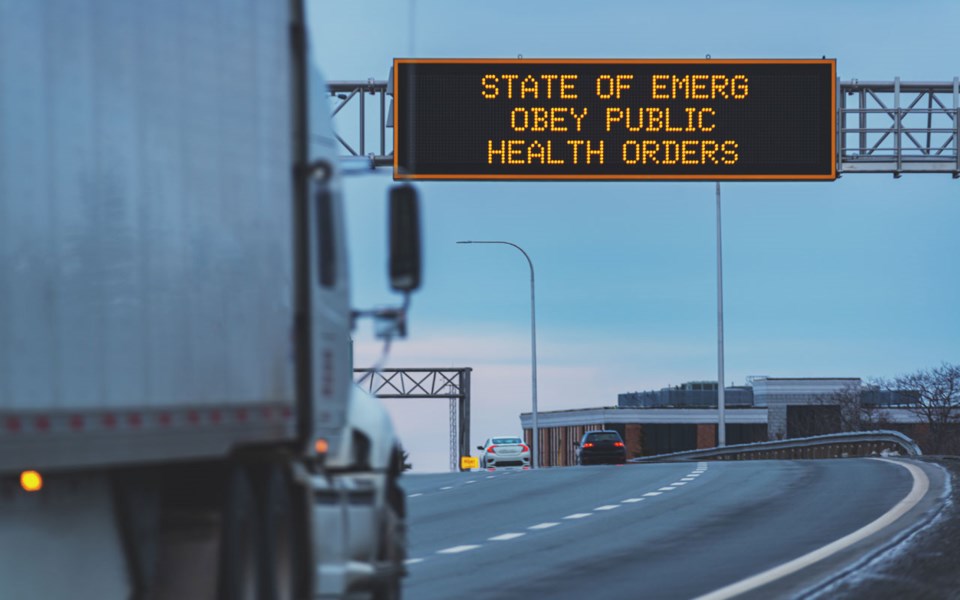In the last few months, it has become clear that our community is speaking honestly about our current pandemic in privacy. Intellectual freedom has become jeopardized and any public discourse contrary to the government narrative has remained silent.
As a long-term resident of Whistler, my personal network [of] friends and colleagues stretch the entire spectrum of Whistler culture and lifestyle. Throughout this event, I have remained in regular contact with my network and a major concerning common [thread] that I have discovered is that we all share many of the same logical oppositions [to] mandates but fear speaking out publicly. My formal request is that we stop behaving as though any dialogue contrary to the narrative voiced by our governing administrations is reprehensible. Such discussion has become taboo and in failing to speak, we falsify our collected data on public opinion.
Government criticism is of great benefit to all of us collectively and more so, our responsibility as contributing citizens of a democracy to maintain the optimal wellbeing of our community.
It is unmistakable that the extraordinary collateral damage caused by this pandemic far outweighs those afflicted with illness of COVID-19. Currently, we are experiencing a void of innate human needs like affection and connection. It won’t be long before we see the already rising suicidal and mental health crises skyrocket to become the next pandemic.
One year into this crisis, we have developed into a place of sustained stress activity in our mind and bodies. Research into long-term effects of fear, anxiety and loneliness reveals an inability to maintain a healthy biological foundation. This affects the body and brain’s oxygen levels, inflammation, dangerous blood pressure levels and intensive psychological disorders, just to name a few.
Locally owned businesses are permanently closing their doors, families are being torn apart, children are losing their friends. Our only shameless avenue to connect with one another in person is limited to few bars, restaurants and skiing. With rumours of Whistler Blackcomb closing at any time, it is paramount that we address the longer-term effects of increasing lockdown mandates and restrictions on our civil liberties.
Should our beloved ski resort close, we would not only destroy our last remaining tie to our non-household loved ones, but also the last thread by which our tourism-based economy is hanging. It is absolute that in a full lockdown scenario, the majority of us would become dependent on government subsidies, allowing sensations of pride and meaning to vanish.
We have been saying that better times are coming. One year in and only worse [things] have arrived. It is good to be optimistic but far enough down that road, we find delusion.
Ask yourself: “Has my consumption of alcohol, drugs or tobacco gone up? Do I feel persisting loneliness or longing for friends and family? When was the last time I laughed until my gut was sore, or danced or sang at the top of my lungs?”
The sad truth is that [some] of those who struggled with a lack of social support pre-pandemic have already perished or declined to a life-threatening level of despair. It is now undeniable that COVID-19 will act [as a] catalyst to some within our community to seriously consider suicide. I have personally heard [of] two cases of this in our community.
I think we can all agree we want to live in a place free of lockdowns and covered faces.
So what logical measures are we taking to work together [for] this shared interest today [to] move away from isolation and socioeconomic devastation? [Neither] you nor I may have a perfect answer now, but the place to start is open communication and debate on the matter.
Whether [your] birthplace is as far as Australia or as near as Vancouver, we have made Whistler home because it has forever been a place that defies “convention.”
A place where we are surrounded by like-minded community that embraces the wide-eyed childlike essence of freedom and play well into retirement just as nature intended.
Our breed of values stretch back to the exemplary nature of our pioneers like Myrtle Philip or even further to the peaceful sharing of our geography by the Squamish and Lil’wat nations.
It is by sheer virtue of being a Whistler resident that you have an understanding of mental and physical health and its value towards a healthy life. Heck, why else would we pay $1,500 of rent for 300 square feet of shared living quarters?
We have always found success in living contrary to the prescribed convention found in major cities or primitive politics. When did we stray from our nature?
Today, we have the opportunity to recognize the value of government while simultaneously taking responsibility to probe mandates in an effort to prescribe a more-tailored strategy for Whistler’s handling of the situation. Instead of blindly following [Provincial Health Officer Dr.] Bonnie [Henry’s] perpetual Groundhog Day report, I implore you to openly question government action and invite dialogue of your community to do the same.
Each day that we silence our concerns, we become further divided. [Prime Minister] Justin Trudeau, Henry, or [Whistler Mayor] Jack Crompton are not your voice. You are your voice. If you feel elements of government mandates are destructive or unlawful towards your basic human rights and freedoms, speak up.
Please, Whistler, I urge you to commence a free and two-sided discourse of our government health orders and mandates. This pandemic is affecting all of humanity in ways far beyond that of just infectious disease. Let us not censor or demonize the thousands of esteemed multidisciplinary scientific opinions. Many of which reside right here in your Sea to Sky corridor.
“In this together?” Let’s start acting like it.
Sue Saw // Whistler




